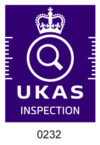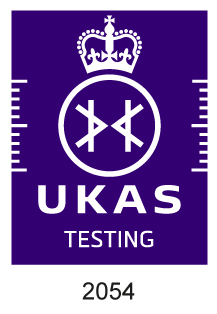Menu
close
**LATEST** New quantitative face fit services for RPE
Book in todayIf you are a property manager, a facilities manager, or a social landlord, you already know how critical your compliance-related duties are. The ‘biggest’ of these responsibilities are sometimes known as the ‘Big 6’:
Managing the ‘Big 6’ is a vital part of your role, and it’s just one of the many tasks that you will be carrying out. The health and safety regulations around these fields are robust, and you need to be aware of every possible problem in order to stay compliant. You may not encounter every one of the Big 6 in your premises – but you need to know exactly what you do need to look out for, and be aware of less obvious issues that have caught others out in the past, resulting in severe fines.
1) ASBESTOS
Asbestos has been banned in construction in the UK since 1999. This is because of the severe health effects that long-term exposure has – more than 5,000 people each year die from historic asbestos exposure.
What you know: if you manage facilities built before the turn of the millennium, you will be familiar with how much care you need to take when working with potential asbestos-containing materials (ACMs). Not least of all by writing and updating management plans, commissioning surveys when required, removing asbestos in poor condition and taking regular awareness training.
What you might not know: how widespread it still is.
Asbestos can be found in 1.5 million buildings across the country, and just a few years ago, it was estimated to be in 90% of the UK’s schools. It can even be found in the soil of some brownfield sites.
2) FIRE SAFETY
If you are a facilities manager, you and your customers know how damaging fire can be. If people on your site feel concerned and you don’t take action, you risk serious prosecution, simply for not being prepared.
What you know: you will no doubt know your responsibilities around fire safety. This includes your potential risk assessment duties, your need to regularly review emergency plans, and your duty to provide signage, safety notices and extinguishing equipment.
What you might not know: how easily and unexpectedly a fire can start.
The London Fire Brigade has identified electrical systems, lighting and smoking as the three biggest causes of workplace fires – but they’ve also warned against e-bike batteries, toasters and even magnifying mirrors – all of which you must be aware of.
Legionella bacteria, which grow in stagnant water frequently found in unmonitored or poorly maintained water systems, are the cause of Legionnaires’ disease – a form of pneumonia.
What you know: identifying risk ‘hotspots’ is important, particularly in places that make heavy use of water systems (such as hotels, leisure centres with pools or healthcare settings that use hydrotherapy pools).
The disease also affects certain ‘at-risk’ groups, such as immunocompromised persons, the elderly and hospital patients with certain underlying health conditions.
What you might not know: because it’s a respiratory disease, you won’t contract it by drinking contaminated water. You’re at risk if you breathe in an aerosol from water systems incorporating a cooling tower, evaporative condensers, a spray from hot and cold water systems, spa pools, and other water and plant systems likely to exceed 20°C.
Gas safety is one of the most tightly regulated areas of compliance. Even non-fatal incidents in this field have led to some of the largest fines in recent HSE history, exceeding £5m .
What you know: any gas works on your site have to be carried out by a certified ‘Gas-Safe’ engineer.
What you might not know: as some sectors transition from gas and LPG to renewable energy, don’t expect these regulations to be less important – areas such as biomass energy are already covered by strict gas legislation (for instance, as wood pellets in storage can release carbon monoxide).
Similar to gas safety, electrical safety has recently been the cause of some of HSE’s most severe prosecutions (such as a £3.6m fine after two electricians unknowingly worked with live components on their site).
What you know: which electrical equipment on your site needs to be checked for potential hazards, and which equipment needs more methodical PAT testing.
What you may not know: both the Government and electricians have warned against using plastic ‘socket covers’, which are sometimes used in care facilities, as these can melt or damage the locking mechanism which prevents us from coming into contact with live parts.
The Lifting Operations and Lifting Equipment Regulations (LOLER) are concerned with anything that lifts a load.
What you know: a ‘load’ can be an object or a person, so both passenger lifts and forklifts are affected by these regulations.
What you might not know: what’s less obvious is that this also applies in some medical contexts to equipment such as patient hoists and standing aids… but not adjustable beds, for example.
As some lifting equipment is also considered ‘work’ equipment, it goes hand in hand with legislation around workplace equipment (PUWER), meaning that you need to know exactly which checks your equipment needs.
You have most of it covered, but you need to be aware of the fine details that could catch you out. With all of these responsibilities to juggle, trusting a partner who can streamline and support your core compliance efforts will give you both peace of mind, and the time to focus on improving your facilities, such as delivering on energy-efficiency initiatives.

AEC has over 25 years’ experience supporting facilities managers to make asbestos, fire safety and Legionella compliances simple, streamlined and stress-free. If you would like support with any upcoming project, don’t hesitate to get in touch with our team at [email protected], or by calling 0203 384 6175.

